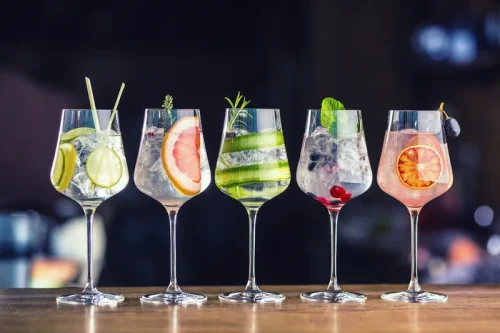
Aftercare programs make it easier to remain in recovery and avoid returning to substance use. It can include a medically supervised detox, various forms of treatment including therapy and 12-step programs, and calling upon family, friends, and professionals for additional support. Someone’s appearance can also indicate if https://ecosoberhouse.com/ they have started drinking again. When an individual is dealing with an active addiction and drinks excessive amounts of alcohol every day, they do not look healthy. Their face may be red and blotchy, they may have a beer belly and look bloated. The amazing thing about sobriety is how the body reacts to the new care.
How common is relapse?

In answering some of our additional questions, many respondents gave glowing endorsements of how MAT has changed their lives, and helped them overcome problem drinking. This medication works by restoring a chemical imbalance in the brain caused by chronic drinking. Once you’re abstinent, however, acamprosate can make a big difference in limiting cravings and drinking urges. It can therefore be a good choice for long-term maintenance and relapse prevention. Medication-assisted treatment is a method of treating substance use disorders through a combination of medication, counseling, and behavioral therapy.

Withdrawal Symptoms
Naltrexone reduces your motivation to drink by blocking the euphoric effects of alcohol. The medication is non-addictive, and is often taken for periods of three months or more. Some people continue to take naltrexone in targeted doses indefinitely, following approaches like the Sinclair Method. It’s often thought that those who struggle with alcoholism can never return to a normal pattern of drinking. Even one drink, the theory goes, and an alcoholic will spiral into a dangerous pattern of excessive alcohol consumption. If you think you or a loved one might be experiencing alcohol abuse or dependency, see how many of the following signs relate to your situation.
Avoid old habits and routines
- Heavy alcohol consumption can raise your heart rate and blood pressure for up to 24 hours after drinking.
- Of the 24 survey respondents, 87 percent considered themselves very heavy, heavy, or moderately heavy drinkers prior to medication treatment.
- If left unchecked, anger can have a negative impact on your health and your lasting sobriety.
- At Genesis Recovery, we are here to answer all your questions regarding alcohol use disorder, the process of recovery, and the slip-ups that come along with it.
Receiving professional guidance can empower individuals to take control of their recovery journey and resist the temptation of drinking alcohol after therapy. A personalized relapse prevention plan is essential for maintaining sobriety, as it helps individuals identify triggers, develop coping strategies, and set achievable goals. By taking proactive steps, such as staying mindful of triggers, using coping strategies, and seeking help when needed, individuals can stay on track with their relapse prevention plan and enjoy a fulfilling sober life. The recovering person may talk themselves into drinking again by creating a strategy for achieving moderation.

In conclusion, the question of whether an alcoholic can ever drink again does not yield a straightforward answer. Instead, it invites a deeper reflection on the nature of addiction, the potential for human resilience, and the importance drinking again after sobriety of personalized recovery paths. The decision to pursue controlled drinking or commit to total abstinence is deeply personal and should be made with careful consideration of the individual’s circumstances, risks, and support systems.

Mitch’s Story of Overcoming Chronic Relapses
- Alcoholism requires treatment, just like any other medical condition, and understanding the potential consequences of consuming alcohol can help individuals make informed decisions to maintain their sobriety.
- Once you are sober, you may realize that some of your past relationships were unhealthy or toxic.
- Some people feel that relapse prevention is about saying no right before they take a drink.
While the recovery period may be challenging, it’s also filled with milestones that can transform your life into one that’s better than you could have previously imagined. Clinical evidence suggests that the most common causes of relapse during this stage are neglecting self-care or not attending self-help groups. The mental challenge of this stage is not to let anything make you feel defeated.
How Long Does Alcohol Stay in Your System?
Combining therapy with support groups can greatly improve your odds of success. The influx of alcohol causes an unnaturally high surge of dopamine and other chemical hormones that deliver an intense sense of well-being, serving to reinforce the use of alcohol powerfully. Include the names of everyone on your medical and support teams and how to contact them.
